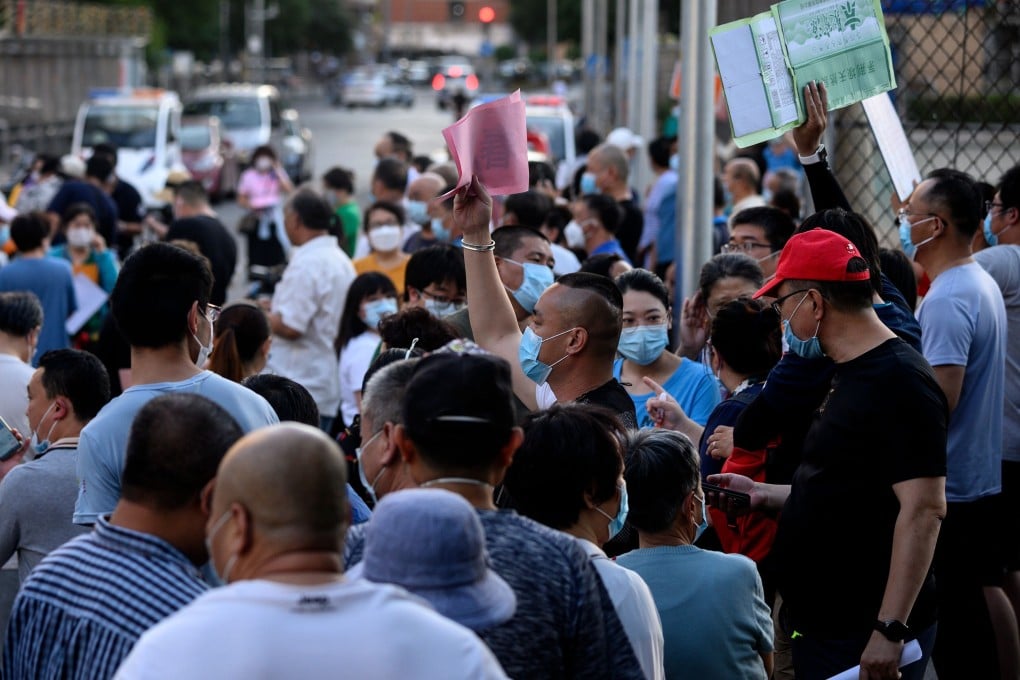Advertisement
Beijing battles ‘explosive coronavirus outbreak’ as food market cases mount
- Scientists struggle to track source of cluster linked to massive food wholesale centre
- Mass testing and strict lockdowns imposed in some parts of the capital while other cities order isolation for travellers from Beijing
Reading Time:4 minutes
Why you can trust SCMP

Beijing is battling an “explosive outbreak” of the coronavirus, with health authorities reporting 36 new local infections in the city in one day – all linked to a food market.
As scientists try to track how the latest outbreak in Beijing emerged, the capital and neighbouring regions have stepped up emergency measures, including renewing lockdowns.
The capital has had 79 new local cases since last Thursday, all of which are linked to the Xinfadi wholesale market in the city’s southwestern district of Fengtai.
Advertisement
Covering 112 hectares, the centre is the biggest of its kind in Asia and supplies food to northern provinces.
Wu Zunyou, chief epidemiologist with the Chinese Centre for Disease Control and Prevention, told Communist Party mouthpiece People’s Daily on Monday afternoon that the situation was very serious.
Advertisement
“Beijing is facing explosive and concentrated outbreaks even though the national epidemic has basically been blocked,” Wu said.
Advertisement
Select Voice
Choose your listening speed
Get through articles 2x faster
1.25x
250 WPM
Slow
Average
Fast
1.25x